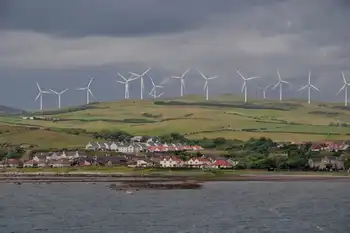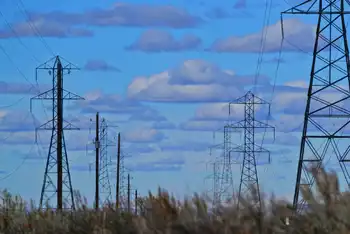Northwest utilities hail energy act
By The Oregonian
Substation Relay Protection Training
Our customized live online or in‑person group training can be delivered to your staff at your location.

- Live Online
- 12 hours Instructor-led
- Group Training Available
Portland General Electric and PacifiCorp officials say the incentives contained in the Energy Policy Act will ease the costs of bringing much-needed energy resources online in the Northwest.
Northwest Natural Gas Co. executives see similar pluses for their segment of the industry, where squeezed natural gas supplies continue to drive up prices for utility companies and their customers.
"I haven't seen anything I don't like," said Jim Lobdell, PGE's vice president of power operations and resource planning. "(The act) could have gone further, but it's a good first step."
Consumer groups aren't nearly as excited. They say the myriad tax breaks and credits outlined in the 1,725-page act help companies and their investors far more than utility customers, who probably will see rates go up, not down, in the years ahead. The act goes into effect in six months.
"It won't do much that's positive for ratepayers," said Bob Jenks, executive director of the Citizens' Utility Board, which represents residential ratepayers.
The provisions are so far-reaching that energy companies are still sorting through the details. Nevertheless, utilities are clearly happy with the package of incentives, worth a total of $14.6 billion to the energy industry to the next decade. Trade group Edison Electric Institute gushed that the act "will lay the foundation for a more secure, reliable and affordable energy future."
PGE and PacifiCorp together distribute electricity to 73 percent of the state's population. Both said one of the act's high points is a provision that extends for two years a tax credit for wind-farm developers.
"It's key to making wind a renewable resource," Lobdell said.
Enron-owned PGE recently signed a 30-year contract with Portland- based wind developer PPM Energy to buy all of the power generated by the 75-megawatt-capacity Klondike II wind farm in Sherman County when the turbines start turning in December. The project wouldn't have been built without the tax credit, Lobdell said.
The utility needs an additional 125 megawatts during the next couple of years, and the extension of the credit - which amounts to 1.9 cents a kilowatt hour - will help ensure more projects and competitive bids, Lobdell said.
The breezy Columbia River Gorge has become a popular spot for wind-farm development.
PacifiCorp, owned by ScottishPower, based in Glasgow, Scotland, is looking to wind and other renewable energy resources to provide 1,400 megawatts of additional power during the next decade. Dave Kvamme, a PacifiCorp spokesman, said adequate supplies probably wouldn't be available without the tax credit.
Still, renewables will continue to represent a small percentage of utilities' resource portfolios, which are dominated in the Northwest by hydropower and natural gas and gas-fired power plants.
The energy act contains incentives for traditional energy resources, too, including:
New investment tax credits for clean-coal power plants, including credits for integrated gasification combined cycle projects (IGCC).
Accelerated depreciation schedules - to seven years from 20 years - for pollution-control devices on older coal-burning power plants.
Accelerated depreciation schedules - to 15 years from 20 years - for high-voltage transmission projects and natural gas distribution pipelines.
Both PGE and PacifiCorp said they may be able to tap into some of these incentives as they acquire additional power, either through contracts with other companies or by building power plants of their own.
"The accelerated depreciation elements end up helping us put in distribution lines less expensively," said Gregg Kantor, a senior vice president with Northwest Natural Gas.
Kantor also said his company should benefit indirectly from the incentives provided for natural gas exploration and production. His company has had to raise rates as natural gas prices have climbed, and the industry is in sore need of additional supplies, he said.
Jenks, of the Citizens' Utility Board, said the energy act should have done more for renewable energy and less for coal, natural gas and nuclear power.
"We're spending billions of taxpayer money to subsidize companies that don't need it," he said.
A piece of the law that has received a lot of attention is the repeal of the Public Utility Holding Company Act. The Depression- era law placed restrictions on utility mergers and acquisitions.
Jenks fears that PGE, PacifiCorp and NW Natural could be hurt by the utility holding company repeal. More and bigger companies will move in to grab Oregon utilities, he warned, and the vast operations of these conglomerates will expose ratepayers to greater risks.
Enron, recently emerged from bankruptcy, plans to transfer ownership of PGE to creditors through a distribution of utility stock. MidAmerican Energy Holdings Co., linked to billionaire investor Warren Buffett's Berkshire Hathaway, is trying to buy PacifiCorp. NW Natural is an independent utility traded on the New York Stock Exchange.
Utility executives say PUHCA's repeal will have little effect on the industry. The energy act expands the authority of the Federal Energy Regulatory Commission, they note, and increases oversight by state regulators such as the Oregon Public Utility Commission.











